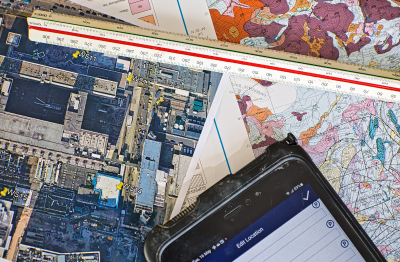

Site investigation solutions
Igne offers turnkey site investigation solutions for the entire pre-construction phase.
Site investigation solutions
Igne offers three main service umbrellas to help you, our client, understand your site.
We help you understand your site in the detail necessary to address various sub-surface hazards, identify and assess where hazards pose plausible risks, provide accurate ground information relating to the soil and rock sequences encountered including geotechnical parameters and the evaluation of contaminative impacts.
This provides you with confidence, and ensures successful outcomes during the planning, design and delivery phases of a development or construction programme.
For simplicity regarding the service offering available, Igne’s site investigation solutions are divided up into three main areas: understanding the site, ground investigation & evaluation, and the delivery of your project.
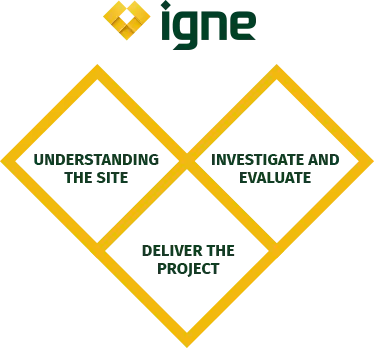
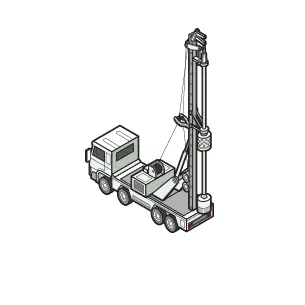
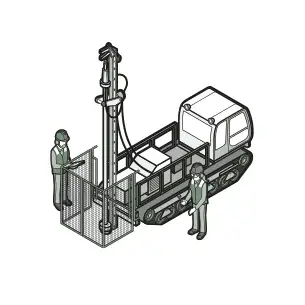
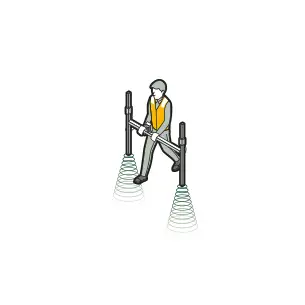

Igne is a registered member of the British Drilling Association under the names of Raeburn Drilling & Geotechnical Limited, Allied Exploration & Geotechnics Limited and Terra Tek Limited, our relevant legal entities.
All Igne Lead Drillers and Support Operatives undertake the BDA Audit, which is a detailed annual review of the individual’s competency and professionalism, as well as a detailed inspection of the plant and equipment to ensure compliance.
In addition to their NVQ in Land Drilling and SSSTS qualification, we believe this to be clear evidence of our ongoing commitment to each individual’s continued professional development, as well as maintaining and developing standards within the industry.
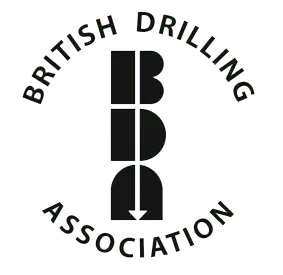
1
Understanding the Site
Services that are encompassed in this category are offered throughout the Igne group.
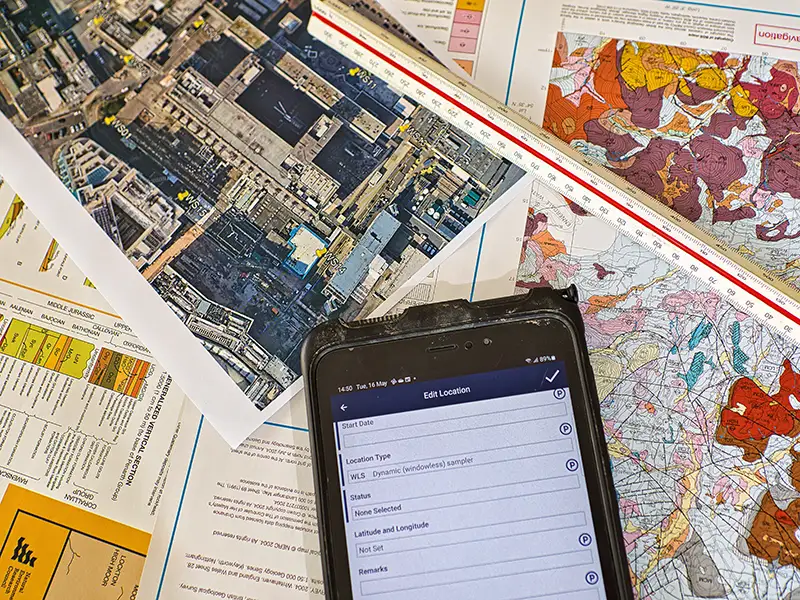
1a - Risk Assessments:
Flood Risk Assessments (FRAs)
FRAs are necessary when working on sites that are at risk of flooding or for developments that are larger than a hectare in size.
The Igne Group offers a quantitative appraisal service to determine whether a site is at risk of flooding, or if a development will cause associated or adjoining areas to be impacted by flooding.
Preliminary / Detailed UXO Risk Assessments
Igne offers two types of risk assessments regarding unexploded ordnance (UXO). The first is a preliminary UXO risk assessment (PRA) which constitutes a report detailing the likelihood of encountering UXO within a particular search area, such can be instantly generated using a postcode or other locational information.
The second, usually used as a follow-up to a PRA (but which can be obtained without a PRA) is a detailed risk assessment which utilises a broad variety of historical sources to gain more information about potential UXO risk and provide mitigation solutions for maintaining safe intrusive and construction related operations.
Generic / Detailed Quantitative Risk Assessments for Ground Contamination
Contaminated land can cause harm to human health, damage to ecosystems, impact land usefulness and quality as well as affect water supplies.
Igne can identify potential sources of contamination on your site, detail the impact it may have and recommend remediation solutions to mitigate the risk.
Coal Mining Risk Assessments (CMRAs)
Coal mining risk assessments s are required for developments planned in coal field areas because of the latent risk posed by sub-surface historical mining activities which can lead to issues of subsidence and fugitive gas movement to the surface.
Various historical features (such as abandoned shafts, adits, staples and mine workings) can cause significant risk to new and existing developments. By using a variety of desk-based resources and liaison with the Coal Authority, Igne can assess the risk posed to sites and existing property holdings from historical mining activity.
The CMRA informs the requirements of an intrusive mining investigation which is undertaken using the techniques outlined in the Ground Investigation and Evaluate section (below) to confirm and assess the risk posed by historic mining activities.
The work is carried out under Coal Authority license and follows applicable guidance to mitigate hazards identified.
Ground Gas Risk Assessment (GGRA)
Gases that emanate from the ground, be they natural or man-made, can be toxic, flammable, explosive, or asphyxiating. This issue, often in mining areas, on or near previous landfills and other types of environmental setting, can pose a plausible risk factor to construction workers and post development end-users.
Igne can assess the risk of hazardous ground gases present on your site, monitor the gas, and offer recommendations or solutions to mitigate risk levels. Long-term assessment methodologies can be undertaken using down-hole automated data logging devices to capture gas fluctuations over a range of atmospheric conditions and induced flow due to in-ground indirect driver mechanisms (e.g., groundwater movements).
1b - Ground Investigation Associated:
Pollution Prevention and Control (PPC) & Site Surrender Reports
PPC baseline surveys create a benchmark for your site’s land condition from the perspective of contamination. These are often required when a site changes ownership or for environmental permitting legislation in relation to PPC directives.
The baseline land contamination conditions can inform planning and development regulators of current risk factors or constraints to building activities and thereby land value. Similarly, on surrender, occupiers may require a complimentary study to confirm that the land has not been unduly impacted by their activities.
Groundwater Studies & Hydrological Modelling
Groundwater studies can be utilised to determine the impact of a project on groundwater conditions and how groundwater issues can impact a project.
1c - UXO Threat Mitigation:
For more information on our UXO services, visit our comprehensive UXO page!
2
Investigate and Evaluate
Igne offers four main service components to assist clients with investigating and evaluating their sites: drilling & probing, on-site testing, geotechnical & chemical testing, and monitoring & reporting
These services are offered at a number of Igne Group locations throughout the UK, with investigation operations undertaken in a wide range of geographical locations and environmental settings, across all sectors of the construction and energy industry, both on-land and over water (near shore).

2a - DRILLING & PROBING
Sonic Drilling
The group owns 5 No. LS 250 Rota-Sonic drilling rigs, capable of achieving depths in excess of 80m below ground level (depending on ground conditions) as well as at angles between 45⁰ and 90⁰.
Sonic drilling offers a fantastic alternative to conventional techniques that can be less successful in both achieving samples for testing and depth penetration. Sonic therefore provides reliable and robust on-site information where more challenging ground conditions occur (such as in dense sands and gravels and cobble/boulder bearing strata).
The sampling system utilitised by the LS 250 rig ensures that all materials are retained within the core barrel before direct extrusion into sample liners at surface. This is ideal when working with contaminated materials and ensures each working area remains clean and clear of potential contaminants and reduces exposure to the workforce.
The LS 250 rigs are designed to continue a borehole by rotary drilling methods once rockhead has been reached. This negates the requirement to mobilise additional conventional rotary drilling plant and personnel to site. The rigs are setup to core through rock using either conventional or wire-line rotary drilling methods therefore offering the opportunity of capturing the entire geological stratigraphy within the borehole. To maximise the locations available to the sonic rig, the LS 250s are mounted on wide rubber tracks and supported by LGP Morooka vehicles.
Cable Percussion Boreholes
Cable percussion drilling constitutes a routine site investigation technique carried out on site typically using 150mm or 200mm casing and tools (although the Group does additionally offer 250mm, 300mm or larger diameters for deeper requirements or where aquifer protection is anticipated.
Our in-house drilling crews are some of the most experienced in the industry and they regularly bore to depths in excess of 40 metres in extremely challenging ground.
Rigs are generally towed into position using a 4WD vehicle or, if in soft ground conditions, mounted on low-ground pressure plant.
Our rigs are fully equipped for standard sampling and on-site testing requirements. Cable percussion techniques allow the facility for obtaining good quality samples (dependent on ground conditions), and where required, boring can be extended into weak rock strata.
Window Sampling Boreholes
Window sampling techniques can be effective in a range of difficult and restricted access situations. To provide enhanced flexibility to our investigation operations, Igne can call upon a wide range of small bore window sampling and probing methods.
The technique is routinely used for sampling and on-site testing of fine grained cohesive and fine to medium granular soil materials to a maximum depth of 10m (routinely 5 to 6m).
Pavement (Asphalt) and Concrete Coring
Diamond pavement and concrete coring involves taking a cylindrical sample from a structure or road pavement for visual assessment and testing purposes. Visual assessment and laboratory testing procedures undertaken on the core sample (or specific layers) typically assist in determining the strength, deterioration, degree of compaction, voiding, composition together with other parameters.
Asphalt can be screened using PAK marker for the presence of coal tar in the binder material, which can then be analytically quantified by specialist chemical testing.
Low Ground Pressure
The group operates 22 items of low ground pressure plant comprising 20 Morooka and 2 Hagglund BV vehicles. A mix of sonic, rotary, cable percussive, window sampling and dual-purpose rigs can be mounted to these vehicles, dependent upon site conditions and client requirements.
Rotary Boreholes
Rotary drilling is primarily used to recover continuous samples of both soil and rock. This work can be undertaken at various diameters, either using conventional or wireline (Geobor S) techniques. Alternatively, open hole methods using a rock-bit or down hole hammer can be used to give a rapid appraisal of the strata, where detailed descriptions are not required.
The information obtained can provide design parameters for foundations, excavations, cuttings and tunnel construction. In addition, highlight the presence of near-surface mineral workings (in accordance with CMRAs)
Different flushing mediums (water, air, mist, mud, foam etc.) . can be used dependant on the anticipated geology A variety of core bits are available to ensure efficient recovery of all rock types
Rotary rigs and ancillary plant are mounted on a variety of different carriers, including 4x4 lorries, tractors and LGP tracked units. This ensures that any challenging access can be achieved with minimum disturbance to the site.
Dynamic Cone Penetration (DCP) Tests
The primary purpose of DCP tests are to enable geotechnical engineers to assess the sub-surface ground conditions using simple qualitative or quantitative methods (often using soil correlations and empirical relationships).
The process involves driving a sacrificial or fixed cone into the ground using a drop weight percussive hammer. Blows per 100mm are recorded and after every 1m section a torque reading is recorded. A further rod is then added, and the process is continued until refusal, or the test reaches the required depth.
The results are plotted on a graph which provides a visual representation of the soil penetrated versus depth and hence an in-sight into density/consistency variations. The penetration rate may be converted to a nominal California bearing (CBR).
Restricted or Difficult Access
Where access is difficult, such as basements, confined spaces or built-up areas, Igne has significant experience and access to bespoke resources from which solutions can be established for most geotechnical applications.
For example, the Igne group offers a low headroom cable percussion rig, cantilever and mining platforms (for safe drilling over abandoned shafts) as well as a number of other unique access methods.
Hand Excavated Trial Pits
Hand excavated trial pits are often used to expose existing shallow structures such as building foundations or underground utility services in order to establish their extent , position, depth and where required, to collect geotechnical and/or geo-environmental samples.
The hand excavated trial pitting approach can also be used in combination with other techniques such as diamond coring or probing to supplement their usefulness, particularly with respect to investigations undertaken within building interiors.
On-site test procedures can follow.
Mechanical Excavated Trial Pits
Mechanically excavated trial pits provide a tool for rapid assessment of widespread, shallow soil conditions up to 4 metres deep.
2B - ON-SITE TESTING
Cone Penetration Testing
Cone penetration testing (CPT) is used to determine the geotechnical engineering properties of soils and delineating soil stratigraphy. Often used as part of an integrated ground investigation approach, CPT can provide a fast and cost-effective means of quantifying the geotechnical and geo-environmental properties of soils and for determining potential unexploded ordnance (UXO) risks.
Permeability Testing
Variable head, constant head and slug permeability testing is offered either as a component part of a larger programme of site investigation or as a standalone operation.
On-site Testing
A full range of UKAS accredited site testing services are also available from a number of Igne's UK locations. These tests include nuclear density gauge, field density by sand replacement test, field density by core cutter method, California Bearing Ratio (various equivalent alternatives), plate load testing (100mm to 760mm diameter), electrical resistivity, thermal conductivity probing, hand or borehole shear vane (Geonor and Farnell) together with other standard geotechnical procedures.
Standard Penetration Testing (SPT)
Standard penetration tests (SPT) are undertaken in boreholes in accordance with BS EN ISO 22476-3, BS EN 1997-2 and NA to BS EN 1997-2. The results derived from SPTs can be used to determine the relative density, bearing capacity and settlement of granular soil, as well as the approximate strength of cohesive soil where appropriately applied.
Soakaway (Infiltration) Testing
Soakaway testing that conforms to BRE 365 procedures is available as a component part of our site investigations services or as a standalone operation.
2c - Geotechnical and Chemical Testing
Chemical Testing
Geo-environmental testing for the assessment of contaminated land represents a key highlight within a broad range of services offered by the Igne group. Testing encompasses the analysis of soil, water, leachate, gas and building materials.
The scope offered includes but is not limited to: asbestos, metals, cyanide & thiocyanate, sulphur, sulphide, sulphate, pH value & chloride, phenols, polycyclic aromatic hydrocarbons (PAHs), total petroleum hydrocarbons (TPHs), volatile and semi-volatile organic compounds (VOC & SVOC), polychlorinated biphenyls (PCBs), herbicides, ammoniacal nitrogen, total nitrate, total hardness, dissolved organic carbon, leachate preparation and analysis, waste acceptance criteria (WAC), and cement content.
Equipment utilised includes gas chromatography/mass spectroscopy, inductively coupled plasma spectroscopy, ultra violet visible spectroscopy, gas chromatography, and furnace atomic absorption spectroscopy.
Igne's laboratories are UKAS/Mcerts accredited and have in-house teams of experienced and fully qualified analysts.
Geotechnical & Environmental Reporting
Data acquired from site operations is processed to allow the preparation of detailed exploratory hole records, graphs, geological cross sections, histograms and tables in formats that can be altered to suit client needs.
Soil and rock classification and reporting (factual and interpretative) are compliant with BS5930 2015+A1:2020, BS EN 1997-2 Eurocode 7: Geotechnical design – Part 2 and BS10175: Code of Practice for the Investigation of Potentially Contaminated Sites, British Standards Institution, 2001. Laboratory testing results and all ground related data derived from the programme of investigations can be provided electronically to industry recognised AGS 4.0 standards.
Geotechnical Testing
Igne's group of companies offer geotechnical testing facilities which can undertake large-scale laboratory driven projects. Testing services include but are not limited to: soil classification procedures (moisture content, liquid and plastic limits, particle density, particle size distribution, maximum/minimum density), soil suitability assessment (moisture condition value, dry density/moisture content relationship and dispersibility, California Bearing Ratio, lime stabilisation), deformability (one-dimensional consolidation, swelling and collapse characteristics), permeability and strength related analysis (undrained unconsolidated triaxial, large and small shear box, effective stress (CUT, CDT))
Igne's laboratories are UKAS accredited and have in-house teams of experienced and competent laboratory technicians.
Igne's UKAS accredited rock testing facilities encompass procedures such as water content, porosity and density, maximum/minimum density, particle shape – flakiness index, unconfined compressive strength, point load index, 10% fines value – dry and soaked, resistance to fragmentation – Los Angeles abrasion, aggregate impact value, particle size distribution, uniformity coefficient, magnesium soundness and slake durability.
Ground Water and Gas Monitoring
The Igne group offers an extensive range of instrumentation options and expertise for the measurement of on-site gas and water parameters in the surface and sub-surface environment.
Automated Systems
Frequently, clients require regular updates with respect to groundwater or gas fluctuations. Igne has in-house expertise to design, install, commission and maintain automated ground information systems.
In addition, Igne can install vibrating wire piezometers to continually monitor groundwater and pressure variations.
3
Deliver the Project
Igne offers three main service umbrellas to help you, the client, deliver your project: water wells & geothermal, site remediation, and quality control assessment.
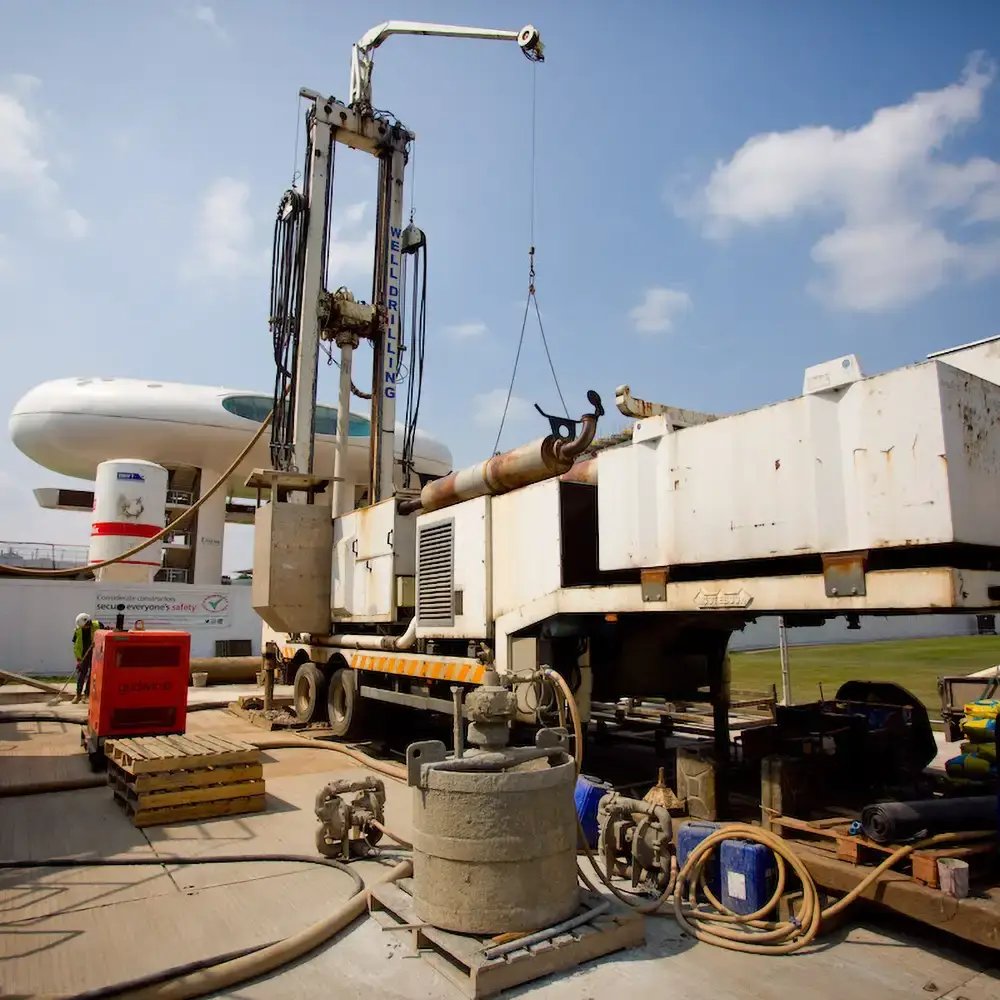
3a - Water Wells & Geothermal
Water Wells
Private water wells are drilled for commercial and residential clients alike. Heavy water using manufacturing businesses, farms and parks or commercial drinks makers can all save money with a private supply. Equally, residential homes that are off the grid, want to be off grid or want a more reliable, cleaner, and cheaper supply can have a water well drilled on their property.
Closed Loop Heat Exchange Drilling
A closed loop heat exchange system absorbs naturally occurring heat contained within the ground and releases it to heat a building. The system combines a heat pump that draws water and antifreeze solution through an underground loop (water pipes), buried at shallow depths. It provides warmth in a renewable way, requiring little maintenance.
There are three different types of closed loop system - horizontal, vertical and a pond or lake system. Drilling requirements depend on the solution chosen. As closed-loop systems are limited to exchanging heat with the ground (or groundwater), they do not alter the environment and are therefore no subject to environment agency regulation.
Open Loop Heat Exchange Boreholes
To harness the geothermal energy in below ground aquifers, two or more boreholes can be drilled and an open loop ground source heating scheme installed. The abstraction borehole draws water from the aquifer, it is carried to a heat pump, where, by means of an evaporator, heat is transferred from the water. That water is then re-injected via the discharge boreholes.
Open-loop systems are regulated by environmental agencies because they alter their energy source by the extraction of water from the aquifer, that could, in turn, affect the characteristics of the ground and, eventually, result in the desiccation of the aquifer.
Pumps & Water Treatment
Igne checks boreholes are outputting safe water by performing UKAS accredited chemical and bacteriological analyses.
Based on the test results, Igne can provide you with a range of water treatment solutions, including water filtration and purification – ensuring your water is clean, safe to drink, and soft.
We will install, test, and maintain the solutions for you – meaning you do not have to worry about your water ever again.
3b - Site Remediation
Remediation Services
Underground services may be an obstruction to or cause interruptions to your site, especially when they are not mapped and their locations are not obvious. Thankfully, Igne can survey, mark, and clear any buried apparatus by utilising a specialist ground penetrating radar (GPR). Igne can also remove said utilities via vacuum extraction if needs be.
Topographical Surveys
Igne can also provide topographical surveys, accurately documenting the natural and manmade features across your site, with precise locational, spatial and elevational information.
Utilities Services Clearance
Underground services may be an obstruction to or cause interruptions to your site, especially when they are not mapped and their locations are not obvious. Thankfully, Igne can survey, mark, and clear any buried apparatus by utilising a specialist ground penetrating radar (GPR). It can remove said utilities via vacuum extraction if needs be.
3c - Quality Control & Assessment
Continued Professional Development (CPD) Training
Igne offers CPD accredited UXO safety briefings and counter-improvised explosive device (C-IED) safety training. UXO safety briefings are primarily conducted for construction workers, those conducting intrusive works, and emergency first responders.
It covers the types of UXO that contaminate land in the UK, ordnance identification, safety precautions, how to respond to suspicious objects, and management review safety planning. The C-IED safety training is designed by IEDD and EOD experts to counter potential terror threads in the UK.
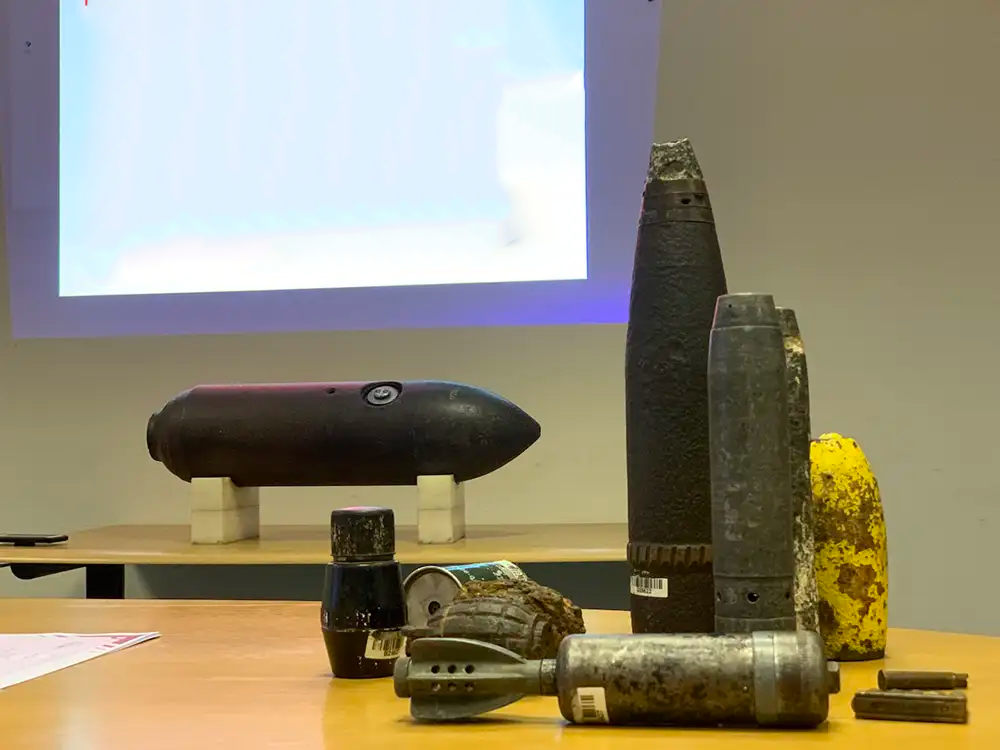

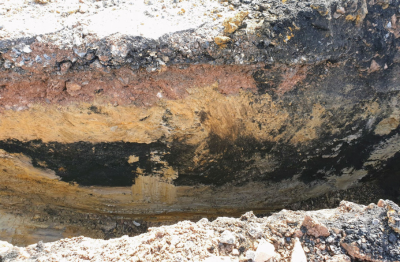
Ground Investigation Reports

Surveys
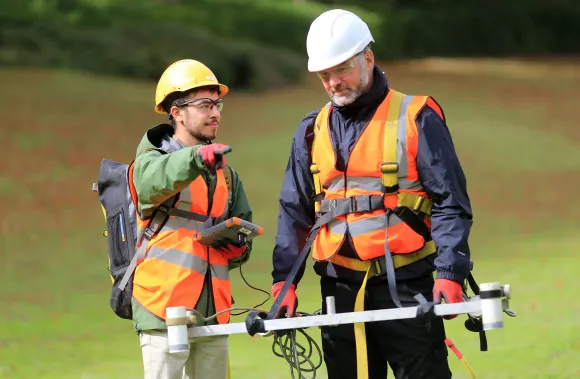
UXO Risk Mitigation
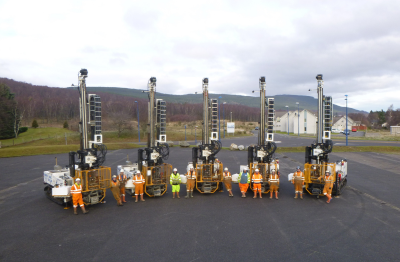
Drilling & Probing
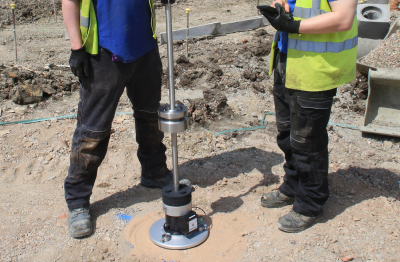
On-Site Testing
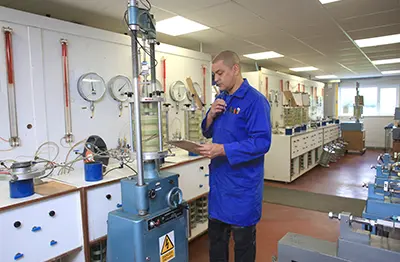
Geotechnical & Geo-environmental Testing
For more information regarding any of our site investigation solutions, contact Igne today
Email: hello@igne.comCall: 0371 789 1000
